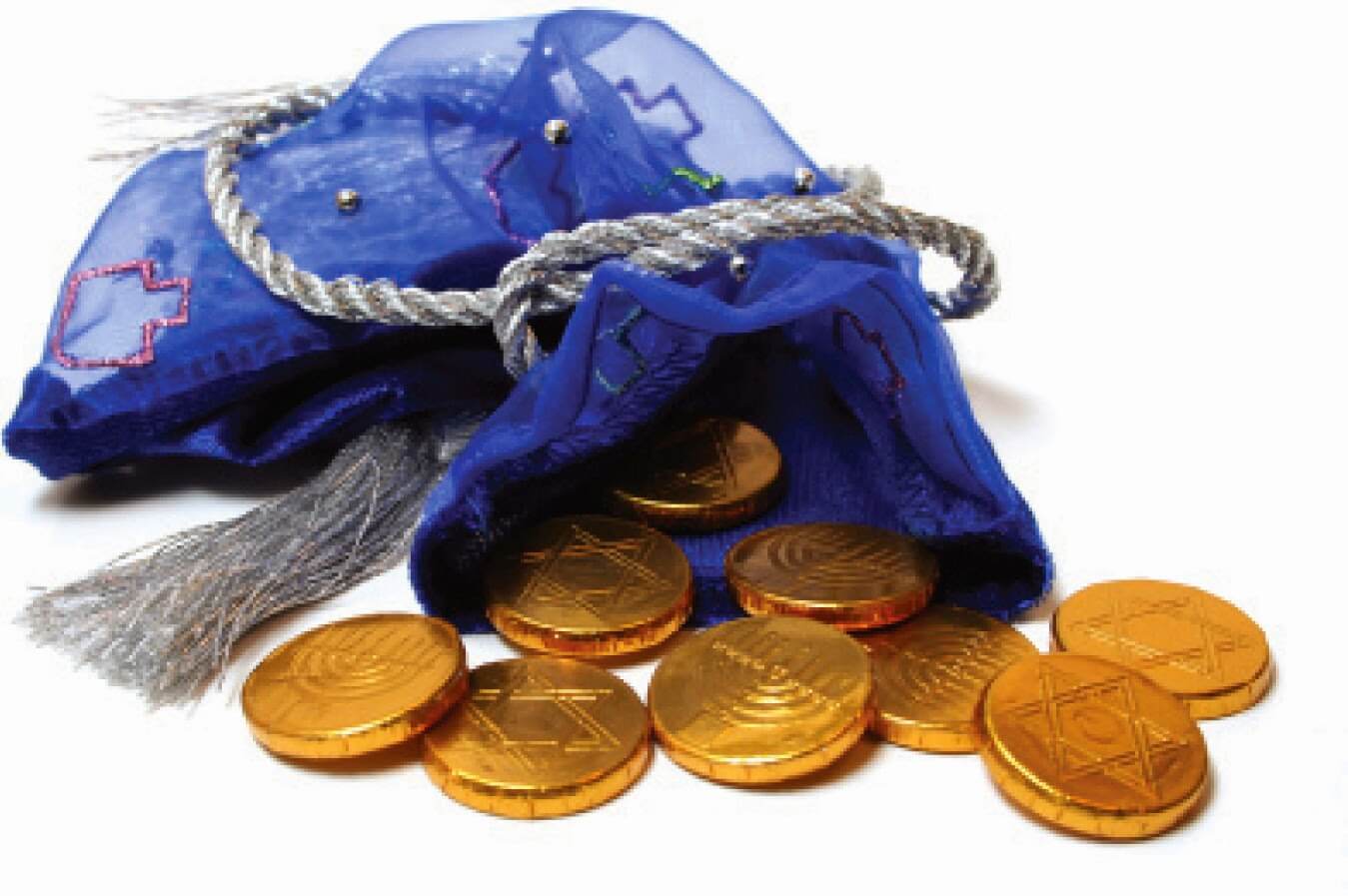“One who is diligent in lighting Chanukah candles will have children who are scholars” (Talmud Shabbat 23b).
The desire for scholarly children was actually one of the motivations for the custom of giving Chanukah gelt (money). In modern times, money has been replaced by Chanukah presents. What is the connection between Chanukah lights, intelligent children and gelt?
Publicizing the miracle of Chanukah is so important that even a pauper, who has no money at all, is required to borrow money in order to buy oil for lighting. People therefore began to give a little money (gelt) to the poor so that they would not be embarrassed or forced to ask for assistance. Because the idea of “being diligent in lighting the Chanukah lights” is primary in both giving to the poor and meriting wise children, it became the custom to give children gelt as a reward for studying. Children who were diligent in their studies were rewarded with a shiny coin.
While gifts are an offshoot of the holiday, they represent an important element of Chanukah–chinuch, Jewish education.
The Maccabees fought so that their children and their children’s children would be able to study Torah freely and be knowledgeable about their Jewish heritage. Jewish children are taught about Judaism not only for today, but for posterity as well, as it says in Proverbs 22:6: “Educate a young person in his/her own way, when he/she grows old he/she will not turn from it.”
Over time, the simple practice of giving gelt (coins or presents) became a Chanukah custom – and not just for children. In truth, however, it is not surprising that gift giving has moved beyond just children. In our own day and age, we, the adults, also need encouragement to learn about who we are and what our Jewish heritage means.
This Treat was last posted on December 1, 2013.

Copyright © 2014 NJOP. All rights reserved.
If you like what you’ve read here, signup to get notifications about new treats.
Related Posts
Giving Gifts
“One who is diligent in lighting Chanukah candles will have children who are scholars”…
0 Comments2 Minutes
Giving Gifts
"One who is diligent in lighting Chanukah candles will have children who are scholars"…
0 Comments2 Minutes
Giving Gifts
“One who is diligent in lighting Chanukah candles will have children who are scholars”…
0 Comments2 Minutes
 Print This Page
Print This Page